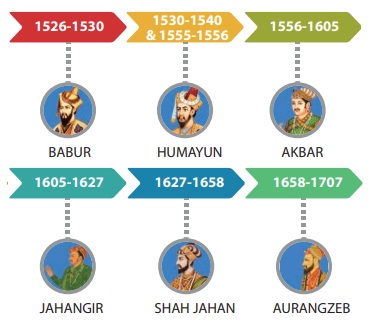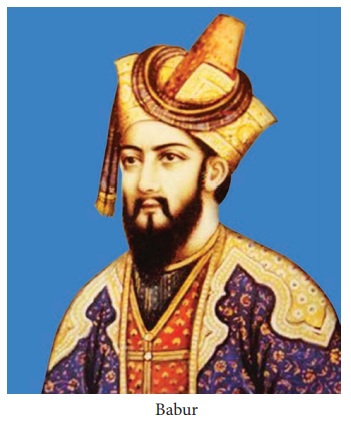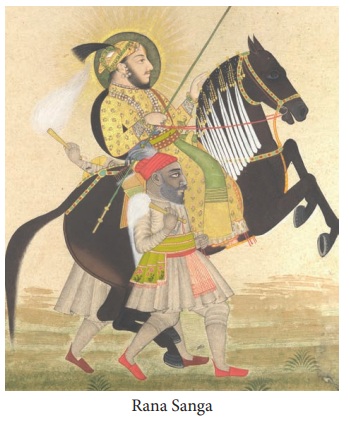The Mughal Empire | Term 2 Unit 2 | History | 7th Social Science - Babur (1526ŌĆō1530) | 7th Social Science : History : Term 2 Unit 2 : The Mughal Empire
Chapter: 7th Social Science : History : Term 2 Unit 2 : The Mughal Empire
Babur (1526ŌĆō1530)
Babur (1526ŌĆō1530)

Ancestry and His Early
Career
Zahir-ud-din Muhammad Babur, popularly
known as Babur, was the founder of the Mughal Empire in India. The term ŌĆśMughalŌĆÖ
can be traced to BaburŌĆÖs ancestors. Babur was the great grandson of Timur (on his
fatherŌĆÖs side). On his motherŌĆÖs side, his grandfather was Yunus Khan of Tashkent,
who was known as the Great Khan of the Mongols and the thirteenth in the direct
line of descent of Chengiz Khan. Babur was born on 14 February 1483. He was named
Zahir-ud-din (Defender of Faith) Muhammad. He inherited Farghana, a small kingdom
in Central Asia, when he was 12 years old. But he was soon driven out from there
by Uzbeks. After 10 years of adversity, Babur established himself as the ruler of
Kabul.

Foundation of the Mughal
Empire
In Kabul, Babur set his sights eastward,
reminded by the memory of TimurŌĆÖs Indian invasion. In 1505, the very year after
he took Kabul, Babur led his first expedition towards India. Yet he was preoccupied
with the Central Asian affairs. He did not have any ambition beyond Punjab till
1524. Then a greater opportunity came knocking. Dilawar Khan, who was Daulat Khan
LodiŌĆÖs son, and Alam Khan, who was the uncle of Sultan of Delhi, arrived in Kabul
to seek BaburŌĆÖs help in removing Ibrahim Lodi from power. Babur defeated Ibrahim
Lodi in the famous Battle of Panipat in 1526 and occupied Delhi and Agra. Following
BaburŌĆÖs victory in this battle, Mughal dynasty came to be established in India with
Agra as its capital.
BaburŌĆÖs Military Conquests
Babur defeated Rana Sanga and his allies
at Khanwa in 1527. He won the war against the chief of Chanderi in 1528 and prevailed
over the Afghan chiefs of Bengal and Bihar in 1529. Babur died in 1530 before he
could consolidate his victories. Babur was a scholar in Turkish and Persian languages.
He recorded his impressions about Hindustan, its animals, plants and trees, flowers
and fruits in his autobiography Tuzuk-i-Baburi.

Following the tradition set by Chengiz
Khan, who nominated the most deserving among his sons as his heir, Babur chose his
favourite and eldest son, Humayun, as his heir.
Related Topics